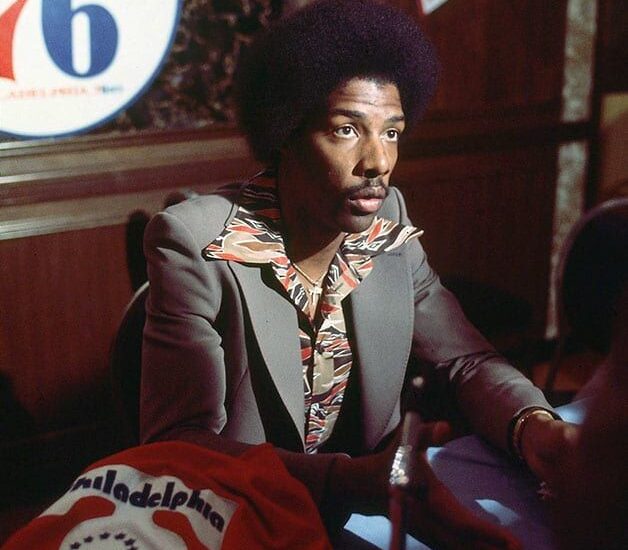
Just In:ABA 1972-73 Virginia Squires, as Coach Bianchi pulled Doc & Rookie Bill Franklin out for a little rest on the bench…..
The 1972-73 ABA season was a pivotal moment for the Virginia Squires, a franchise that showcased both burgeoning talent and the trials of a struggling team in a competitive league. Under the guidance of coach Bianchi, the Squires attempted to find their footing amid the challenges posed by their opponents, the league’s structure, and the ever-present search for a sustainable fan base. Among the key figures in this narrative were Julius “Dr. J” Erving and rookie Bill Franklin, both of whom played significant roles during this memorable season.
The ABA Landscape
The American Basketball Association (ABA) was in its prime during the early 1970s, competing fiercely with the NBA for talent, fans, and media attention. The league was known for its flashy style, innovative play, and a commitment to the three-point line—an idea ahead of its time. The Squires were one of the many franchises in the league trying to carve out their identity, and the presence of star players was crucial in this endeavor.
The Coaching Philosophy of Bianchi
Coach Bianchi, with his keen eye for talent and tactical acumen, recognized the potential of his roster. His decision to pull Erving and rookie Franklin for a breather during games was emblematic of his strategy to manage minutes and maintain player stamina throughout the rigorous season. Bianchi understood the demands placed on young players and sought to develop their skills while keeping the team competitive.
Erving, already establishing himself as a formidable player, was the focal point of the Squires’ offense. His ability to score, coupled with his acrobatic style of play, captivated fans and created excitement in the arena. However, even stars need rest, and Bianchi’s decision to rest Erving highlighted a strategic foresight that acknowledged the long season ahead.
The Emergence of Bill Franklin
Rookie Bill Franklin was another player to watch during this season. Drafted with hopes of adding depth to the roster, Franklin’s transition into the professional game was closely monitored. He brought a unique skill set to the team, showcasing versatility that allowed him to contribute both offensively and defensively. Bianchi’s decision to utilize Franklin alongside Erving provided a glimpse into the future of the Squires, as the two players began to develop a chemistry on the court.
Franklin’s performances often mirrored the struggles of the Squires as a whole. While he displayed flashes of brilliance, there were also moments of inconsistency that are typical for a rookie. However, under Bianchi’s tutelage, he started to find his footing, and the coaching staff worked diligently to harness his potential.
Team Dynamics and Challenges
As the season progressed, the Squires faced their share of challenges. The ABA was filled with competitive teams, and the Squires struggled to maintain a winning record. Injuries and inconsistent performances plagued the roster, forcing Bianchi to constantly adapt his game plan. Despite these hurdles, the team demonstrated resilience, often rallying around their star players.
Bianchi’s ability to cultivate a strong team culture was essential. He emphasized teamwork and communication, crucial elements for any franchise seeking to rise in a league filled with talent. The bond between Erving and Franklin was symbolic of this culture, as they began to learn from each other and share the pressures of being part of a rebuilding team.
Fan Engagement and Attendance
Despite the struggles on the court, fan engagement remained a vital aspect of the Squires’ operations. The team worked to connect with the community, hosting events and engaging with supporters to build a loyal fan base. The presence of stars like Erving was a significant draw, as spectators flocked to see one of the league’s most electrifying players in action. Yet, attendance fluctuated, reflecting the challenges faced by many teams during this period.
The Legacy of the 1972-73 Season
The 1972-73 season for the Virginia Squires was marked by both promise and struggle. The potential of players like Erving and Franklin provided a glimmer of hope for fans and management alike. Bianchi’s approach to coaching, characterized by his ability to rest key players and develop young talent, would lay the groundwork for the future of the franchise.
As the season came to a close, the Squires faced questions about their future. Would they be able to keep their star players? Could they continue to develop promising rookies like Franklin? These questions loomed large, but one thing was clear: the experiences of the 1972-73 season would shape the direction of the franchise in the years to come.
You may also like
Archives
Categories
- ABA
- Actor
- Actress
- Actress and singer
- Band
- Baseball
- Basketball
- Boxer
- Broadcasting corporation
- CCR
- cricketer
- Cyclists
- Dart
- Drummer
- Fictional character
- Football game
- Formula 1
- Golf
- Guitarist and songwriter
- Guitarists
- Gymnastics
- Hockey
- Ice hockey
- Marathon
- MLB
- Motocross
- MotoGP
- Motorcross
- Musician
- Musician and drummer
- NFL
- NHL
- NRL
- Racer
- Red bull Racing
- Rider
- Rock band
- Rugby league
- Simone Biles
- Singer and songwriter
- Songwriter and musician
- Sport commentator
- Tennis
- Texas longhorns
- Track and field athlete
- Uncategorized
Leave a Reply